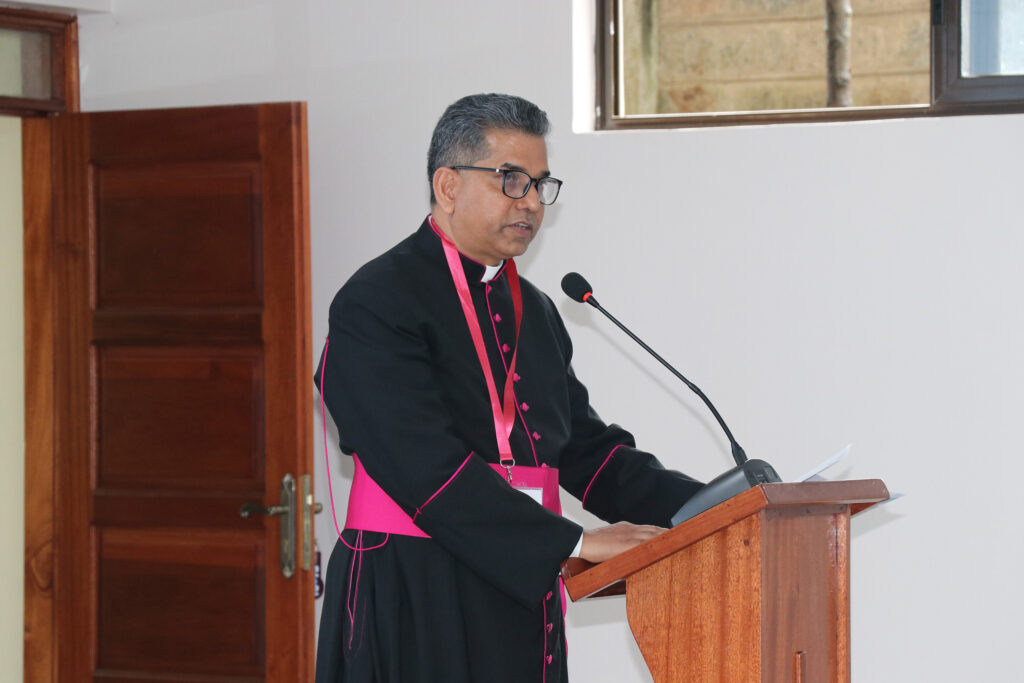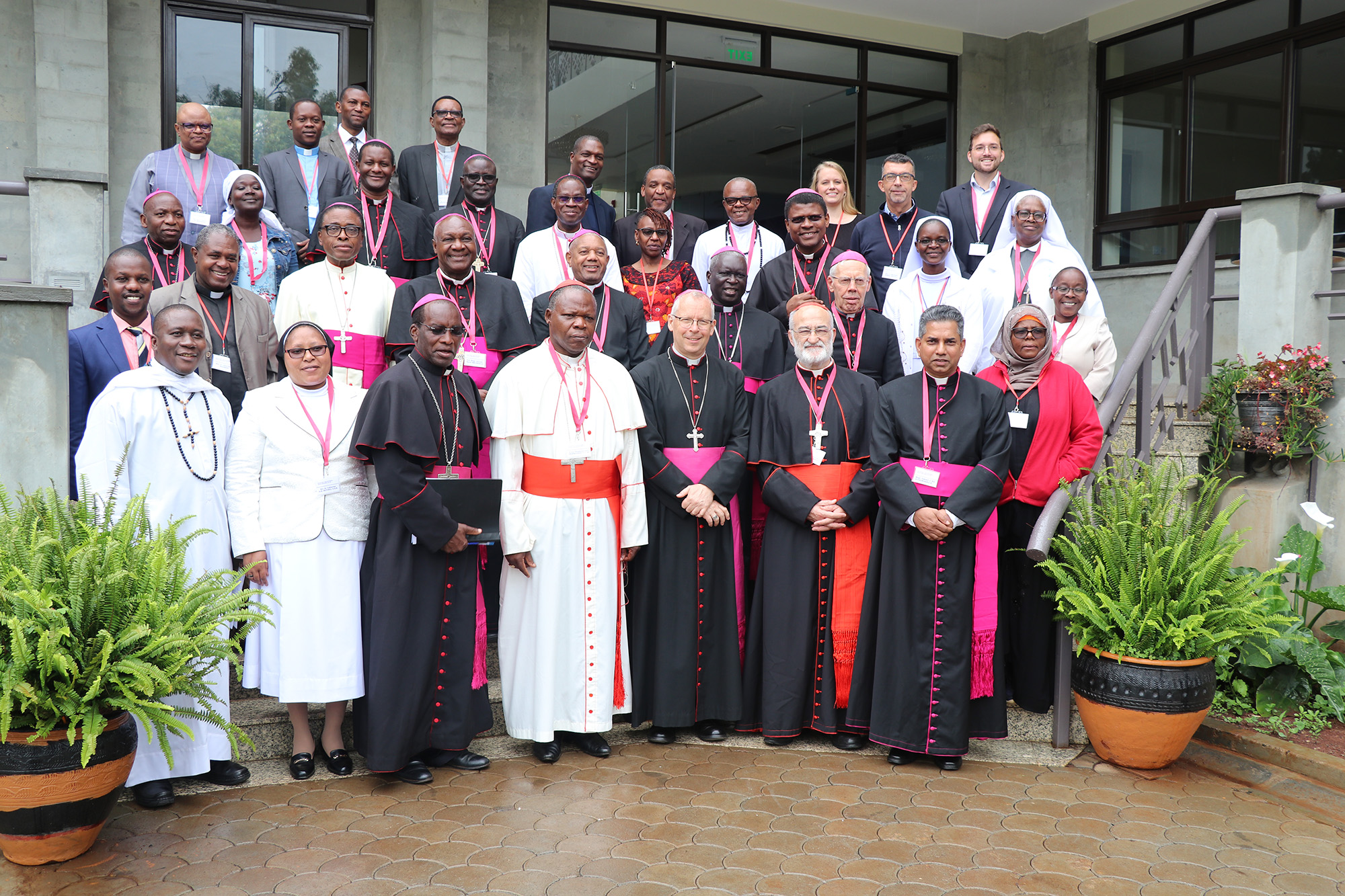KENYA: Conference on Interreligious Dialogue Encourages “Religious Freedom”

Monsignor Indunil
Sr. Jecinter Antoinette Okoth, FSSA
At a consultative workshop for coordinators of the bishops’ Commissions for Interreligious Dialogue and other pastoral agents across Africa, official from the Holy See’s Dicastery for Interreligious Dialogue (DID) stressed religious freedom as a key component in promoting harmonious coexistence between Christians, Muslims and followers of the African Traditional Religions (ATR).
“We must encourage religious freedom rather than oblige people to embrace a religion by force,” Secretary of the DID Reverend Monsignor Indunil Kodithuwakku Janakaratne said in his message read on behalf of the Prefect of the same Dicastery His Eminence Miguel Cardinal Ángel Ayuso Guixot.
Referencing Pope Paul VI’s message in the declaration Dignitatis Humanae which focused on Religious Freedom, Monsignor Indunil said, “Religious freedom in society is entirely consonant with the freedom of the major tenets of Catholic doctrine that man’s response to God in faith must be free and no one therefore is to be forced to embrace the Christian faith against his own will.”
The Sri Lanka-born and a member of the clergy of the Diocese of Badulla told the over 30 participants on Tuesday, April 9, to objectively analyze the legal governmental religious frameworks, “as some politicians tend to exploit religious differences for their political gain.”
According to Msgr. Indunil, such acts increase tension and division among religious communities hence solution requires a commitment to dialogue.
 The Vatican official underscored further that there have been challenges in the relationship between Muslims, Christians, and ATR believers such as polarization, conflicts, and religious radicalization “which jeopardize social harmony leading to mistrust, stereotypes, fear of others, exclusion and violence.”
The Vatican official underscored further that there have been challenges in the relationship between Muslims, Christians, and ATR believers such as polarization, conflicts, and religious radicalization “which jeopardize social harmony leading to mistrust, stereotypes, fear of others, exclusion and violence.”
Accordingly, some theological and socio-political dynamics also pose challenges for interreligious dialogue including, “competition for followers and influence between Christianity, Islam and ATR and aggressive efforts to convert others cause friction among different religious traditions resulting in mutual accusations of religious intolerance.”
Even though there have been challenges between religions, Msgr. Indunil said, there is also hope and progress realised in some parts of the continent when the Church in Africa through the Symposium of Episcopal Conferences of Africa and Madagascar (SECAM) see the need to nurture dialogue with other religious traditions.
This body (SECAM) which exists to give the Church in Africa opportunity to journey together in times of common challenges in the continent and for the Church to speak as with one voice, recognizes interreligious dialogue as part of the Church’s evangelizing mission.
The two-day conference from 9th to 10th April held in Donum Dei, Kenya was themed: Christianity in Dialogue with Islam and African Traditional Religion: Challenges and Opportunities, and brought together believers of different religious backgrounds for mutual conversations.


